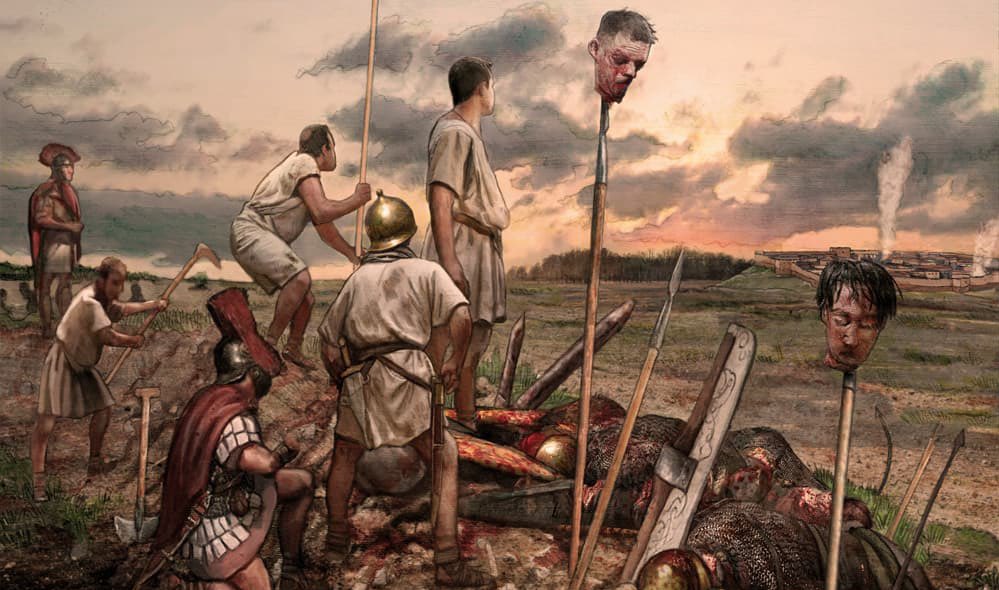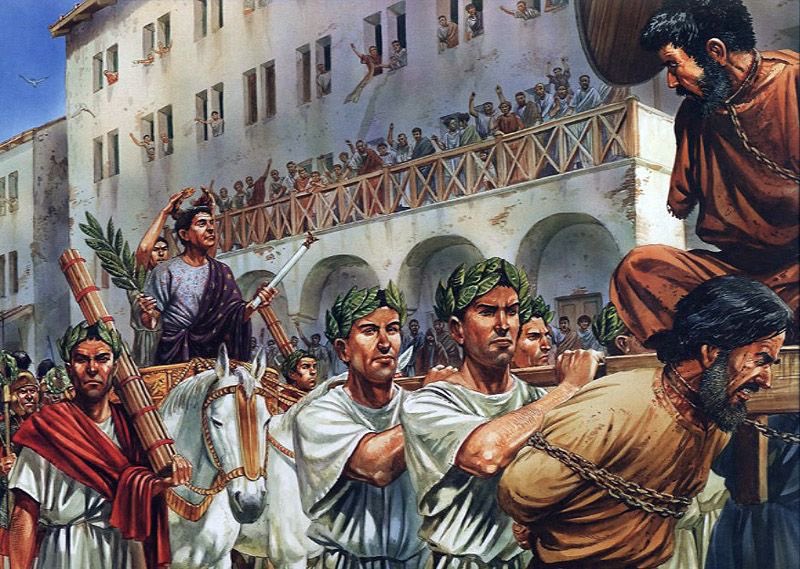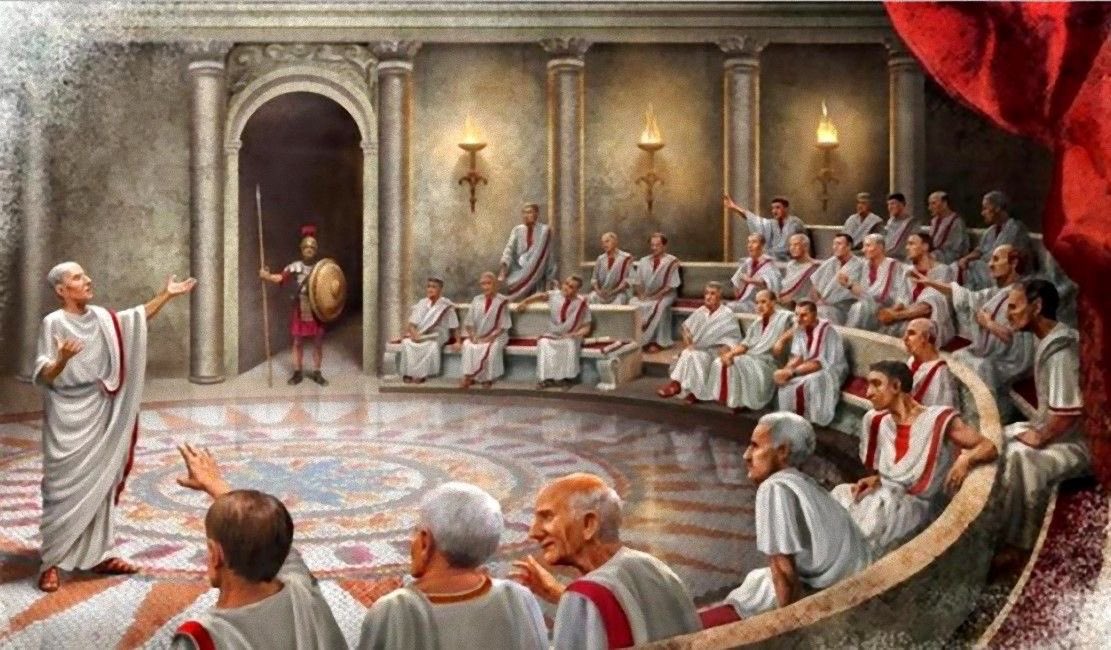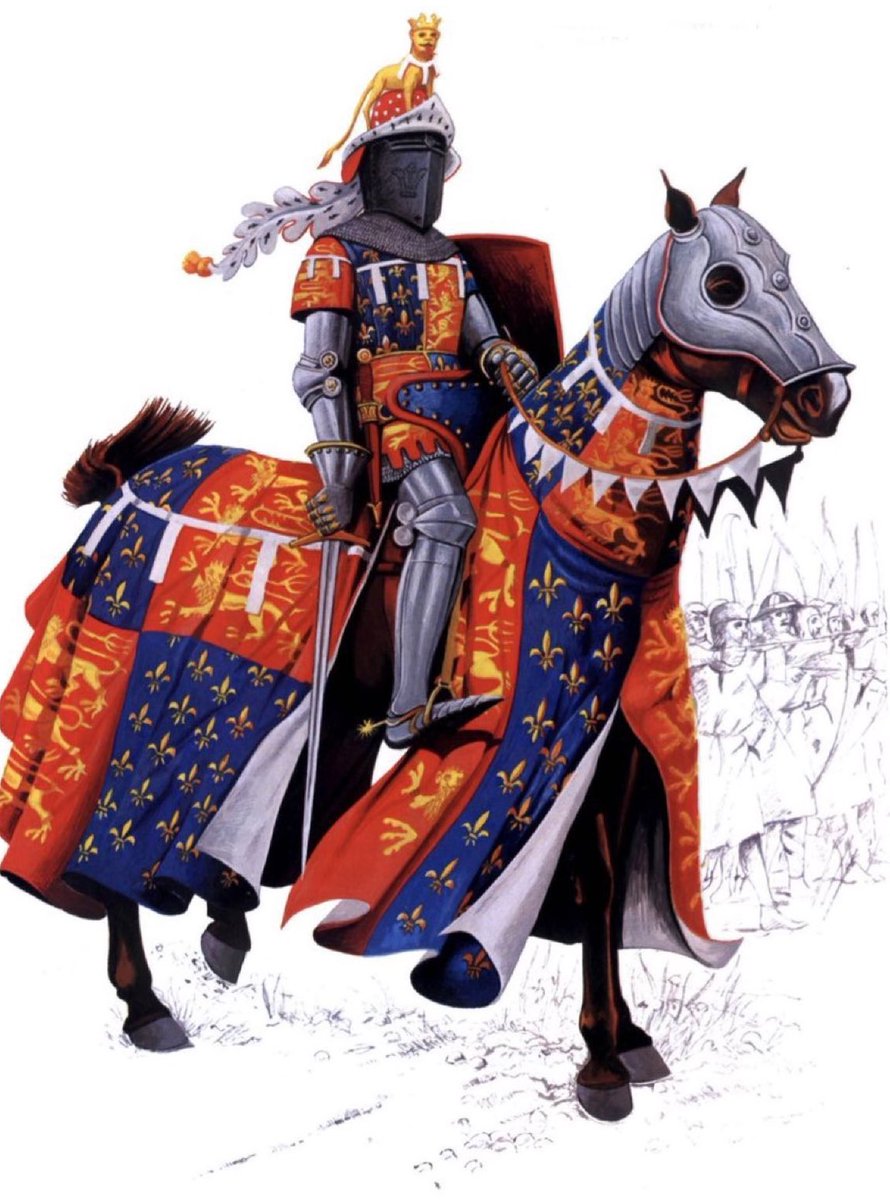The most decorated soldier in antiquity was a Roman who fought in six wars and won so many awards that he was even thanked in the senate house.
When he petitioned the consulate for promotion, the speech and deeds of of Spurius Ligustinus were set down!
[Thread]🧵
When he petitioned the consulate for promotion, the speech and deeds of of Spurius Ligustinus were set down!
[Thread]🧵

The lives of ordinary people are rarely recorded in the annals of history which tend to focus on the deeds of the rich and mighty, but one exception is a speech given by Spurius Ligustinus and recorded by Livy:
‘After the consul had said what he wanted to say, one of those who were appealing to the tribunes, Spurius Ligustinus, begged the consul and the tribunes to allow him to say a few words to the Assembly. They all gave him permission, and he is recorded to have spoken to the following effect’
‘After the consul had said what he wanted to say, one of those who were appealing to the tribunes, Spurius Ligustinus, begged the consul and the tribunes to allow him to say a few words to the Assembly. They all gave him permission, and he is recorded to have spoken to the following effect’
‘Quirites, I am Spurius Ligustinus, a Sabine by birth, a member of the Crustuminian tribe. My father left me a jugerum of land and a small cottage in which I was born and bred, and I am living there today. I became a soldier in the consulship of Publius Sulpicius and Gaius Aurelius.’
The year in which he joined the army was 200BC.
The year in which he joined the army was 200BC.

‘For two years I was a common soldier in the army, fighting against Philip in Macedonia’
During the second Punic War, Philip V of Macedon allied himself with Hannibal. When Carthage was defeated and Rome emerged triumphant, the Greek city states turned to them for assistance against the Macedonians who had allied with the Seleucids and began attacking the Greek kingdoms.
Philip ignored the ultimatum issued by Rome and the Romans invaded.
During the second Punic War, Philip V of Macedon allied himself with Hannibal. When Carthage was defeated and Rome emerged triumphant, the Greek city states turned to them for assistance against the Macedonians who had allied with the Seleucids and began attacking the Greek kingdoms.
Philip ignored the ultimatum issued by Rome and the Romans invaded.

‘…in the third year Titus Quinctius Flamininus gave me in consideration of my courage the command of the tenth company of the hastati.’
Titus Flaminius Quinctius defeated Philip V at the battle of the Aous when a second Roman force was led through a pass to attack the Macedonians from the rear.
Titus Flaminius Quinctius defeated Philip V at the battle of the Aous when a second Roman force was led through a pass to attack the Macedonians from the rear.

Next, the weakness of the once great Macedonian Phalanx was exposed at the battle of Cynoscephalae where, during the fighting, the Romans routed the left wing of the Macedonian army and chased it so far down a hill that one tribune realised that he could turn and attack the exposed rear of the Macedonian right wing and detached around 2,000 men to do so.
The inflexibility of the Macedonian Phalanx meant the Romans cut them down with ease.
It is highly likely that Spurius Ligustinus fought in at least one of these battles, if not both.
The inflexibility of the Macedonian Phalanx meant the Romans cut them down with ease.
It is highly likely that Spurius Ligustinus fought in at least one of these battles, if not both.

‘After Philip and the Macedonians were vanquished and we were brought back to Italy and disbanded, I at once volunteered to go with the consul Marcus Porcius to Spain.’
When the Romans captured the Carthaginian lands in southern Spain, war broke out with the native Celtiberians. Marcus Porcius Cato, known as Cato the Elder, took a large army to Hispania. Cato captured several towns and defeated the Celtiberians in battle.
Spurius Ligustinus said of him:
‘Men who during a long service have had experience of him and of other generals know that of all living commanders not one has shown himself a keener observer or more accurate judge of military valour. It was this commander who thought me worthy of being appointed first centurion in the hastati.’
When the Romans captured the Carthaginian lands in southern Spain, war broke out with the native Celtiberians. Marcus Porcius Cato, known as Cato the Elder, took a large army to Hispania. Cato captured several towns and defeated the Celtiberians in battle.
Spurius Ligustinus said of him:
‘Men who during a long service have had experience of him and of other generals know that of all living commanders not one has shown himself a keener observer or more accurate judge of military valour. It was this commander who thought me worthy of being appointed first centurion in the hastati.’

‘Again I served, for the third time, as a volunteer in the army which was sent against Antiochus and the Aetolians. I was made first centurion of the principes by Manius Acilius.’
The Seleucid king Antiochus the Great was expanding westward into Asia Minor, earning the ire of Rome. To add insult to injury, he was also harbouring Hannibal, the once dreaded enemy of the Romans.
In 192 BC he invaded Greece and was met by the consul Manius Acilius Glabrio and his army at Thermopylae!
Much like the famous battle of Thermopylae which saw the Spartan led force fall before the Persians, Antiochus was also flanked by the Romans who had found a pass through the mountains and attacked his camp! The Seleucid morale immediately collapsed and their army was destroyed.
Antiochus was forced to give up much land in the ensuing treaty.
The Seleucid king Antiochus the Great was expanding westward into Asia Minor, earning the ire of Rome. To add insult to injury, he was also harbouring Hannibal, the once dreaded enemy of the Romans.
In 192 BC he invaded Greece and was met by the consul Manius Acilius Glabrio and his army at Thermopylae!
Much like the famous battle of Thermopylae which saw the Spartan led force fall before the Persians, Antiochus was also flanked by the Romans who had found a pass through the mountains and attacked his camp! The Seleucid morale immediately collapsed and their army was destroyed.
Antiochus was forced to give up much land in the ensuing treaty.

‘Then I served in Spain, once under Quintus Fulvius Flaccus and again under Titus Sempronius Gracchus.’
The campaigns of Gracchus and Flaccus served to expand and consolidate Roman control of Hispania in the long-running conquest of Hispania.
At one point, the Celtiberians thought Flaccus was fleeing at the news of their latest actions and prepared a trap at the Manlian Pass. Upon entering his army was assaulted on both sides but in an hard-fought battle, the Romans are said to have killed 17,000 Celtiberians which, even if an exaggeration, gives an insight into the extent of their victory.
The campaigns of Gracchus and Flaccus served to expand and consolidate Roman control of Hispania in the long-running conquest of Hispania.
At one point, the Celtiberians thought Flaccus was fleeing at the news of their latest actions and prepared a trap at the Manlian Pass. Upon entering his army was assaulted on both sides but in an hard-fought battle, the Romans are said to have killed 17,000 Celtiberians which, even if an exaggeration, gives an insight into the extent of their victory.

‘I was brought home by Flaccus amongst those whom, as a reward for their courage, he was bringing home to grace his triumph.’
For his victories in Spain, Quintus Fulvius Flaccus was awarded a triumph and selected Spurius Ligustinus to take part in his triumphal procession, a great honour for any Roman soldier.
For his victories in Spain, Quintus Fulvius Flaccus was awarded a triumph and selected Spurius Ligustinus to take part in his triumphal procession, a great honour for any Roman soldier.

‘I joined Tiberius Gracchus at his request. Four times, within a few years, have I been first centurion in the triarii’
Spurius Ligustinus then returned to Spain to receive another promotion and serve under Gracchus again as he continued the campaign to subdue the Celtiberians and extend Roman Authority.
Spurius Ligustinus then returned to Spain to receive another promotion and serve under Gracchus again as he continued the campaign to subdue the Celtiberians and extend Roman Authority.

After serving 22 years in the Roman army, he petitioned the consulate for further promotion and ended his speech with:
‘Four times, within a few years, have I been first centurion in the triarii; four-and-thirty times have I been rewarded for my courage by my commanders; I have received six civic crowns. I have served for twenty two years in the army and I am more than fifty years old.
…What rank the military tribunes think that I deserve is for them to decide; I will take care that no man shall surpass me in courage; that I always have done so, my commanders and fellow-campaigners bear witness.‘
‘Four times, within a few years, have I been first centurion in the triarii; four-and-thirty times have I been rewarded for my courage by my commanders; I have received six civic crowns. I have served for twenty two years in the army and I am more than fifty years old.
…What rank the military tribunes think that I deserve is for them to decide; I will take care that no man shall surpass me in courage; that I always have done so, my commanders and fellow-campaigners bear witness.‘

Livy writes:
‘When he had finished speaking, the consul commended him most warmly and took him from the Assembly to the Senate. There, too, he was thanked by the senate, and the military tribunes made him leading centurion in the first legion in recognition of his bravery.’
Nothing was written of his life afterwards and he disappears from history.
In his speech he said that he had a wife and eight children.
‘When he had finished speaking, the consul commended him most warmly and took him from the Assembly to the Senate. There, too, he was thanked by the senate, and the military tribunes made him leading centurion in the first legion in recognition of his bravery.’
Nothing was written of his life afterwards and he disappears from history.
In his speech he said that he had a wife and eight children.

Men like Spurius Ligustinus, with their willingness to repeatedly volunteer to face the greatest of dangers, were the backbone of the Roman army, a testament to the indomitability of the Romans and part of the reason why they were able to conquer the Mediterranean. 

• • •
Missing some Tweet in this thread? You can try to
force a refresh






















